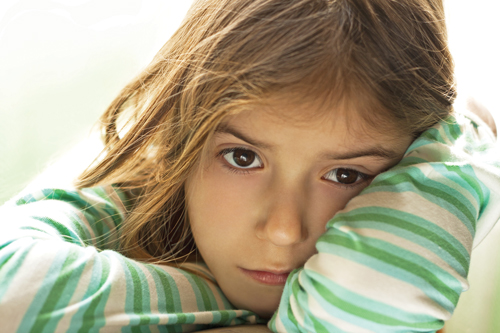In a recent survey to understand the effects of clutter on mental health, it was found that women are more affected by clutter in the home with four in five (79%) admitting that clutter makes them feel stressed, compared to just 59% of men.
It’s no surprise that we are feeling the effects of clutter building up at home with almost three-quarters (74%) wishing they had more storage space at home. Furthermore, over two-thirds (69%) of respondents agreed they could spend less time tidying their homes if they had a declutter – considering the 20% differentiation between stress levels, some might say that cleaning and tidying is still seen, by many, as ‘women’s work’.
However, we are taking action with our clutter, but only usually brought on by significant changes in life, with the main reasons people would choose to have a declutter being moving house (60%), decorating (54%) and downsizing (44%). Around a third said they would consider a declutter to relieve stress (37%) and improve their mental health (31%).
Though the KonMari Method of decluttering, created by Marie Kondo, has increased in popularity, Caboodle’s survey shows that people are still reluctant to declutter – ironically because of what they might throw away.
Though we know that clutter often causes us stress, more than half are not willing to declutter as they worry they might throw away something that they would need again (50%) or that they’d get rid of something that they have an emotional attachment to (55%).
Commenting on the emotional decluttering effects of a clear-out, Leone Ashby from Cluttercation, one of Caboodle’s decluttering experts, said: “Decluttering is a cathartic experience and brings peace and zen into your home. The initial fantastic feeling when you see your treasured room, wardrobe or pantry transformed is euphoric.
However, there is an art to decluttering that ensures this feeling prolongs without any regret for items you could have used in the future or you had great attachment to but may not have a need for today”.
Introducing the ‘Caboodle’ Method
– keep, save, throw
Marie Kondo’s method of decluttering encourages us to “Keep only those things that speak to the heart, and discard items that no longer spark joy”.
The Caboodle Method is all about how and, if so, when items bring a benefit to you and your life.
There are three key steps:
Keep items that you need and use now, consider if you have an emotional attachment to them, do they inspire you or do they bring a benefit to your life right now?
Save items that you cherish, inspire you and bring a benefit to your life but you don’t need right now by storing in a safe and organised place outside the home making more space!
Throw away (or donate to charity) items that you haven’t used or considered for six months and have no emotional attachment to.
Why save?
It avoids that feeling of regret and is a more sustainable option. Saving these items outside the home will save on space but the items are at your fingertips whenever you need them again.
Examples of items include:
• Winter wardrobe in the summer and vice versa.
• Children’s toys and clothing – for your next child/a friend.
• Holiday items you only use once a year.
Top tips for decluttering:
1. Start decluttering one room at a time, starting in one corner so to not overwhelm you, take items and sort them into the three categories keep, save and throw. Bonus tip: Always leave the room and take a short
break before you finally make your decisions.
2. Always use big crates or bin bags to sort items into piles – it makes the clean up so much easier.
3. Have cleaning products to hand as you declutter so you can clean as you go.
4. Never feel regret. If you can’t disassociate yourself from treasured possessions that you just can’t use at the moment then ‘save’ them by using a storage solution that will keep everything organised.
5. Always check with other members of your family on the key items you are ‘throwing’, to make sure everyone is happy and no one else wants the items.
Caboodle storage is all arranged online at  and they will deliver free boxes, then collect and protect your belongings from as little as £1.40 per week.
and they will deliver free boxes, then collect and protect your belongings from as little as £1.40 per week.


 At our school, our children are driven by our ethos ‘Consideration Always’. As role models to the school community and beyond, we entrust them to develop and demonstrate the best version of themselves. Children develop when they are given the opportunity to do so. Mary Myatt’s philosophy of ‘high challenge, low threat’ leadsthe way.
At our school, our children are driven by our ethos ‘Consideration Always’. As role models to the school community and beyond, we entrust them to develop and demonstrate the best version of themselves. Children develop when they are given the opportunity to do so. Mary Myatt’s philosophy of ‘high challenge, low threat’ leadsthe way.












